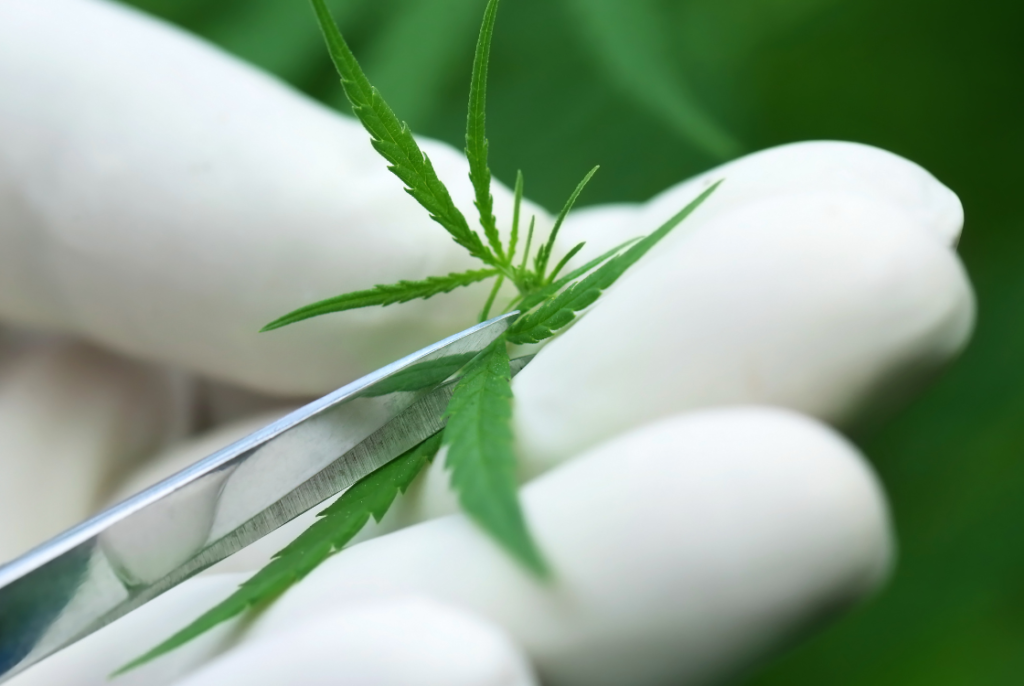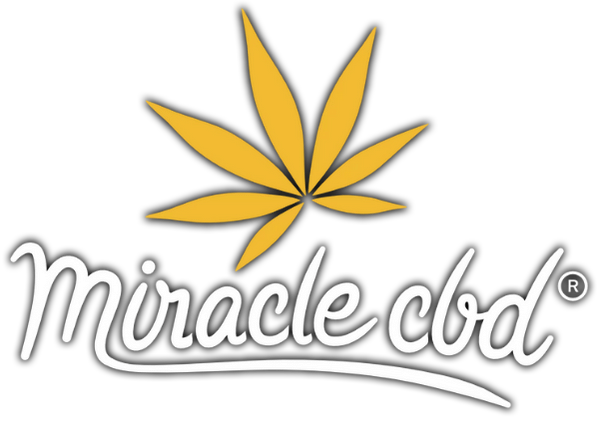The truth about HHC: What does the research show and have there been any studies?
Hexahydrocannabinol is currently the most discussed substance. In the following days, the government will include it among the prohibited substances and HHC sale so it will be completely stopped. The reason for this quick reaction is the alleged fact that it is easily accessible to juveniles. At the same time, it is said that we do not have enough information about how hexahydrocannabinol affects our body at all, and whether its regular use can leave some consequences on us.
We don't have as much information about hexahydrocannabinol as we do about cannabinoids CBD or THC. This is of course due to the fact that, in the case of HHC, it is a relatively new substance that was practically forgotten until recently. However, the truth is that several studies have already taken place. At the same time, it should be added that hundreds of thousands of people regularly use HHC in the Czech Republic - and that without any problems. In addition, experts agree that its toxicity is significantly lower than that of alcohol, which is gleefully promoted on television and other media.
So let's look at the clear facts about hexahydrocannabinol!

What did the HHC studies focus on?
In the past, studies concerning HHC focused exclusively on the safety of this substance. After all, it is a semi-synthetic cannabinoid that is not directly extracted from plants in its natural form.
For example, a study published in September 2022 in the journal Cannabis Science and Technology focuses on the non-clinical in vitro safety evaluation of a cannabis derivative, specifically (R/S)-hexahydrocannabinol ((R/S)-HHC). This work represents the first steps towards a detailed understanding of the safety profile of this rare cannabinoid compound.
The authors chose to investigate the safety profile of (R/S)-HHC through preclinical in vitro studies – that is, the tests did not take place directly in humans. They used third-party laboratories to obtain data on the safety profile of this compound in a test tube. The study included assessment of cardiomyocyte cytotoxicity, gene expression using the hERG gene (human Ether-à-go-go-Related Gene), and tests on hepatocytes and lung fibroblasts.
The aim of the study was to demonstrate that (R/S)-HHC is safe for potential human consumption. Due to the growing interest in cannabinoids and their potential medicinal properties, it was important to conduct a detailed safety evaluation of this specific compound.

What are the results of the research paper?
The study provides evidence of the safety of (R/S)-HHC for consumption – in this case, however, we must not forget two things; the first is that all the tests were carried out by the in-vitro method, i.e. essentially in petri dishes. The second fact is that it is only a potential safety with regard to the physical health of our organism.
However, the authors highlight mild cytotoxicity to lung fibroblasts, suggesting a possible avenue for future remediation. The results open the door for further studies that could assess the potential therapeutic effects of HHC, especially in the fight against certain types of lung cancer.
A new study from 2024 also draws attention to possible risks
While in the past studies were primarily concerned with whether we could basically poison ourselves with HHC and whether it was safe to ingest it at all, currently the trend is going in a different direction. After finding out that hexahydrocannabinol is not a "poison" and does not significantly harm the body, scientists focused on psychological effects. After a number of different incidents, some doctors and members of the scientific community suspected that regular consumption affects the mental state in the long term and can lead to the development of psychiatric diseases in extreme cases.
The association of THC with the possible onset of psychosis
In the past, the relationship between cannabis and the development of psychotic illnesses has already been confirmed. Cannabis contains over 500 known compounds, of which 125 are cannabinoid compounds with diverse and often conflicting systemic and psychoactive effects (Radwan et al. 2021). The main psychoactive compound in cannabis is delta-9-tetrahydrocannabinol, or THC, whose partial agonism at the CB1 receptor leads to the sensation of "narcosis" in cannabis intoxication (Ashton 2001).
A meta-analysis of 18 studies and 66 individuals reported an odds ratio of 816 for the risk of psychotic outcomes among the heaviest cannabis users compared to non-users (Marconi et al. 3,90). A subsequent multicenter case-control study suggests that this association is likely mediated by THC, with higher THC levels being strongly correlated with high rates of psychosis (Di Forti et al. 2016).
What is responsible for the increasingly strict conditions of sale (HHC) of cannabis?
Despite the legalization of cannabis in many areas (for example, CBD and other "new" cannabinoids), in recent years its widespread legalization in Europe has been slowed down by its apparently harmful effect on mental health and especially its connection with the development of psychotic diseases. At least that's how government officials very often present it, even though cannabis THC is much less invasive compared to alcohol!
One possible consequence of continued illegality is that users in an unregulated environment consume high-potency cannabis or synthetic cannabinoids, which can lead to negative effects, including psychosis, when used excessively (Murray et al. 2016). Hexahydrocannabinol (HHC) is a semi-synthetic cannabinoid produced from CBD that is similar in chemical structure to THC. This substance is labeled as semi-synthetic because it is synthesized from CBD, which is often derived from hemp with a low THC content. HHC binds to CB1 and CB2 receptors and thus has demonstrable psychoactive effects.
These have been heavily demonized in recent times, although no truly definitive studies have yet been published that demonstrably point to its physical or psychoactive effects on humans.
However, if we proceed from the facts available to us, we will find that in the Czech Republic alone, HHC products are used by hundreds of thousands of people who do not give up on them! Most often, they consume them precisely because of a bad mental state, which basically contradicts the above conclusions. In addition, it is one of the most effective means of relieving unpleasant pains.
In conclusion about the safety of HHC
Studies indicate that we don't have to worry about our physical health. HHC could even have potential therapeutic effects in this area, such as the aforementioned analgesic, pain-relieving, and anti-inflammatory properties. In the same way, hexahydrocannabinol can also serve us well from a psychological point of view. In such a case, however, it is very important to control the amount of doses in order to avoid possible negative effects, which are most often associated with overuse of this substance.
Do you need help?
If anything is not clear to you and/or you want advice on the selection, please write to us below in the comments below the post, via contact form or contact us by e-mail info@miralecbd.cz. Thank you
.png)
Our tip: look at map of branded cannabis stores Miracle CBD, where you have the unique opportunity to consult your needs with professionally trained staff from our team. We have all products in stock, so you don't have to wait for delivery by courier and you can take the products home the same day. We bring you the unrivaled best CBD, HHC and kratom already from 2020!
Shop J. Hradec – Masaryk Square 1 | Mladá Boleslav store – Železná 162
.png)
Sources:
- HHC-induced psychosis: a case series of psychotic illness triggered by a widely available semisynthetic cannabinoid
- Synthesis and Characterization of the Diastereomers of HHC and H4CBD
- Meta-analysis of the Association Between the Level of Cannabis Use and Risk of Psychosis
- Cannabinoids, Phenolics, Terpenes and Alkaloids of Cannabis
- Pharmacology and effects of cannabis: a brief review
- Meta-analysis of the Association Between the Level of Cannabis Use and Risk of Psychosis
- The contribution of cannabis use to variation in the incidence of psychotic disorder across Europe (EU-GEI): a multicentre case-control study
Article author: Monika Břešťanská
NOTICE: Cannabis and kratom products are exclusively for collector, industrial and technical purposes. Alternatively for further sale and processing. In no case are they intended for consumption, inhalation or smoking! The described effects are purely informative. Company Miracle CBD does not approve or otherwise support the abuse and sale of psychotropic and narcotic substances!


